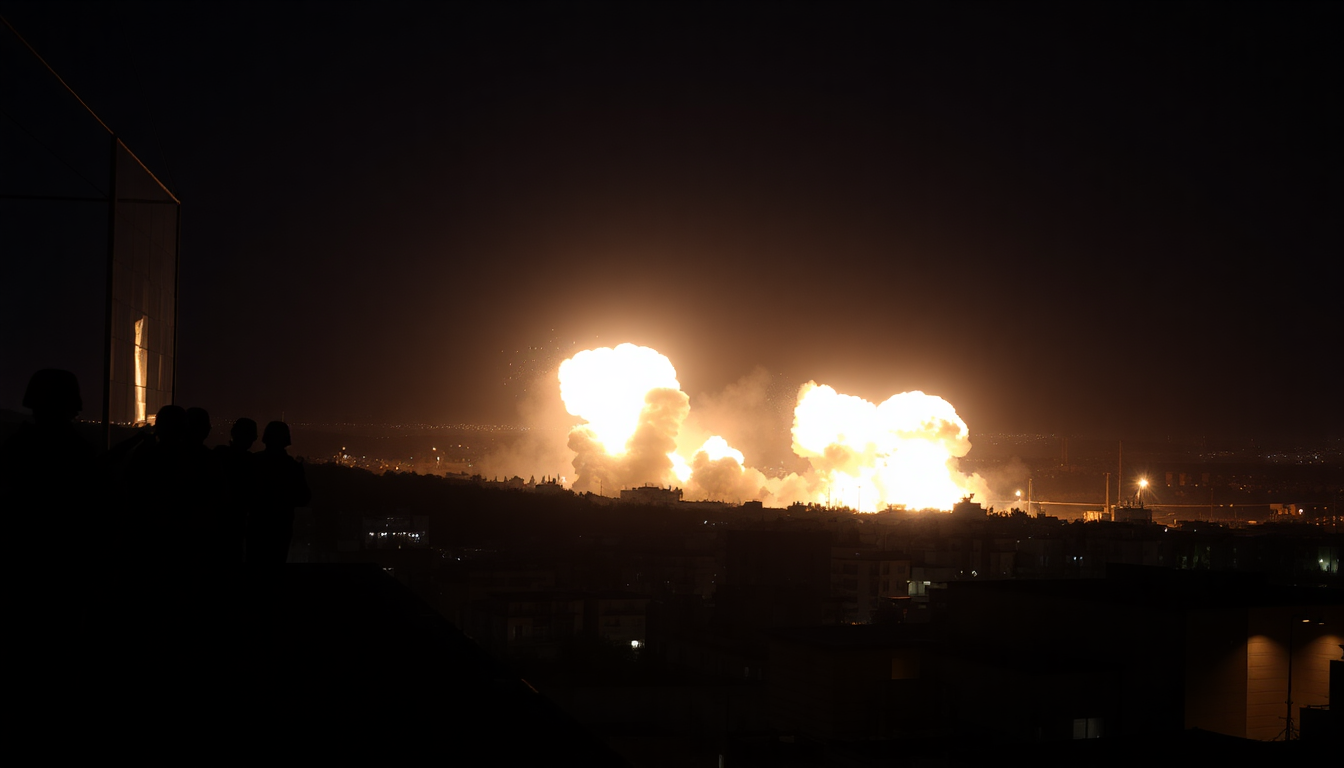Table of Contents
The world woke up to the shocking news of Israel’s early Friday morning strikes against Iran, which were labeled a “preemptive strike” on Iran’s nuclear ambitions. Talk about a wake-up call! This isn’t just some petty squabble between neighbors; it’s a high-stakes game of geopolitical chess where the stakes are the very foundations of power. And who’s caught in the crossfire? Just about everyone who’s got a stake in this sordid affair. Major General Hossein Salami, head of Iran’s Islamic Revolutionary Guard Corps, is reported dead, a casualty in this escalating confrontation. But really, who’s keeping score?
Targeting the core of Iran’s military
Israel didn’t pull any punches. The military operation targeted a dizzying array of military and nuclear sites across Iran, aiming to decapitate the leadership of Iran’s military and nuclear programs. The audacity! Videos verified by various media outlets showed extensive damage in Tehran, particularly around Vanak Square. Smoke billowed into the night sky, and by the morning, shattered glass littered the streets. Is this the new normal? A world where the sound of explosions becomes a soundtrack to our daily lives?
Iran’s Tasnim News Agency confirmed the deaths of several key military figures, including Salami and other prominent nuclear scientists. The rhetoric coming out of Iran was just as explosive as the strikes themselves. Supreme Leader Ayatollah Ali Khamenei warned that Israel should “expect severe punishment” for these actions. But let’s be real; when has a threat from a supreme leader ever stopped a bomb from falling? It’s like trying to stop a freight train with a matchstick.
International reactions and implications
As the dust settled, U.S. Secretary of State Marco Rubio clarified that the U.S. had no role in the strikes. But let’s be honest here; when has the U.S. ever been able to stay out of a conflict that could stir the pot? Rubio stated that Israel viewed this as a necessary action for self-defense. Self-defense? More like throwing a Molotov cocktail into a room full of fireworks. Who really thinks this is going to end well?
The International Atomic Energy Agency is “closely monitoring” the situation. But what does that even mean? Are they just watching the chaos unfold with popcorn in hand? Meanwhile, the sounds of explosions echoed not just in Iran but were reported over Baghdad and other Iraqi provinces. It’s almost like a twisted concert, with the whole neighborhood invited to witness the spectacle.
Israel’s strategy and future actions
Israeli Defense Minister Israel Katz made it clear that thwarting Iran’s nuclear program is his top priority. But at what cost? The lives lost, the families shattered, does it all amount to a strategy worth pursuing? It seems like a reckless gamble with human lives as the chips on the table. Katz stated they would continue to deal with the “snake’s head,” but one has to wonder if they’re just provoking a larger beast.
As for the people of Iran, the aftermath of these strikes has left them reeling. How does one come back from such an assault? Reports of civilian casualties came flooding in, adding to the already tense atmosphere. And let’s not forget that while the bombs were dropping, in Tel Aviv, people were gearing up for a Pride parade. Talk about a stark contrast! Just when you think life couldn’t get any more surreal, reality hits you square in the face.
The ongoing conflict and its broader implications
The situation in the Middle East is a powder keg, and every action taken by one side ignites a series of reactions. With ongoing tensions between Israel and Hamas, and the specter of Hezbollah lurking in the shadows, one has to wonder how long this cycle of retaliation can continue. The Israeli-Palestinian conflict has already claimed countless lives, and with the U.S. supplying arms and support to Israel, the fire only grows hotter.
So, where do we go from here? Will this lead to an all-out war? Or will cooler heads prevail? Who knows? What’s certain is that the game of chess continues, and with each move, the board becomes more crowded and the stakes higher. And while the politicians play their games, it’s the average citizens who pay the price. What a world we live in!


